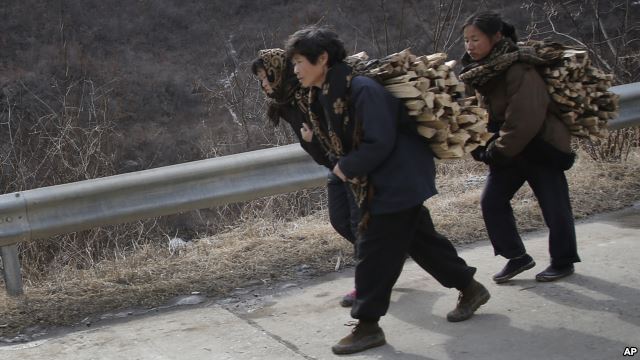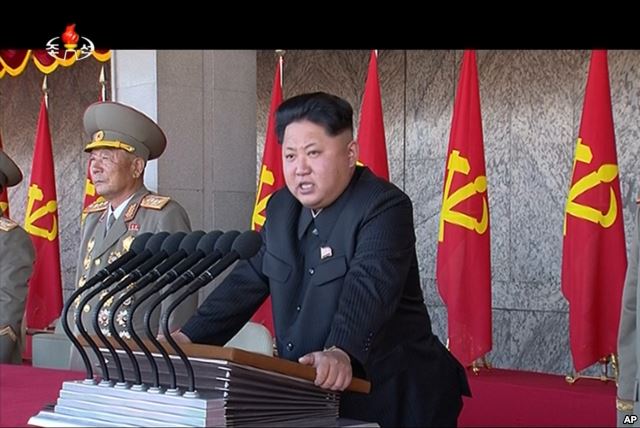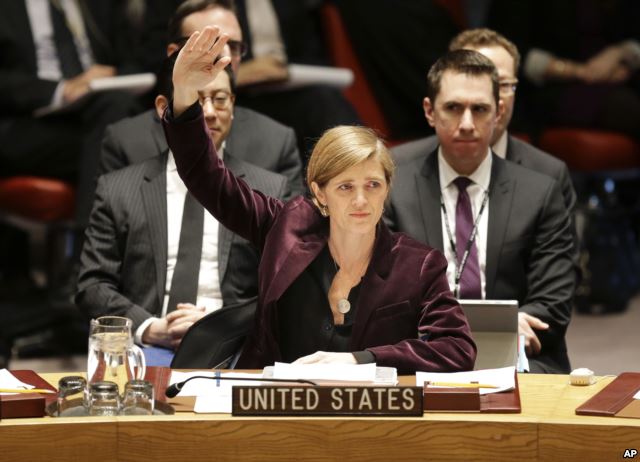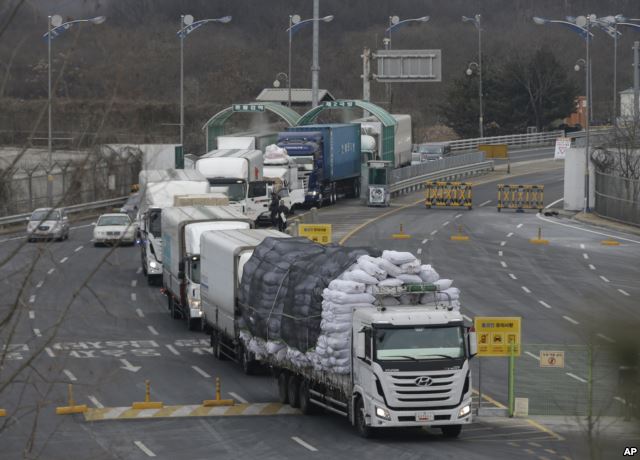North Korea Sanctions Pose Human Rights Dilemma

Human rights organizations are supporting the new international sanctions imposed on North Korea to restrict its nuclear program, even though the economic measures could make life more difficult for many people in the country who already live on the margins of poverty.
“I think the whole idea of pressure on North Korea is something that is important because it actually makes the government recognize that it can no longer live outside of international law,” said Phil Robertson, deputy director of the Asia division at Human Rights Watch, a non-profit civil rights advocacy organization.
Sanctions and human rights
The United Nations measures adopted in response to North Korea’s fourth nuclear test in January and long-range rocket launch in February placed trade and financial restrictions on Pyongyang to cut off funding to its nuclear and ballistic missile programs.
The U.N. sanctions, however, did not mention the 2014 U.N. resolution to refer North Korea to the International Criminal Court (ICC) for crimes against humanity, or the extensive U.N. human rights report that documented ongoing and systematic atrocities, including a network of political prisons, murder, enslavement, torture and rape.
The human rights measure has still not been brought to a vote in the U.N. Security Council given the near certainty that North Korean allies China and Russia would veto it.
The United States and China collaborated on developing the international sanctions, and Beijing most likely opposed any focus on human rights violations, given its own record of, according to critics, unlawful harassment, imprisonment and torture.
But when the U.N. sanctions were adopted on March 2, Samantha Power, the U.S. ambassador to the United Nations, did link the two issues and accused North Korea of caring more about expanding its nuclear weapons program than “growing its children.”
The U.S. unilateral sanctions recently imposed also included North Korean human rights abuses as justification for the punitive measures.
Humanitarian consequences
Some human rights advocates argue that humanitarian hardships caused by the sanctions are unavoidable but necessary to pressure the Kim Jong Un leadership to end its repressive ways. “The sanctions from the international community will have an economic impact on North Koreans, but on the other hand the North Korean regime will clearly feel the impact as well,” said Choi Yong-sang, with the Network for North Korean Human Rights in Seoul.
Workers in the mining industry will likely suffer from the U.N. ban on the export of North Korean minerals. Although humanitarian exceptions in the resolution that allow for the trade of coal and iron not connected to any government organizations could cushion the economic blow.
Financial restrictions that ban North Korean banking transactions and blacklist a number of individuals and organizations linked to the North’s nuclear program could have a chilling effect on potential donors and investors.
The U.S. unilateral sanctions could also target anyone connected to the North Korean labor export program that earns billions of dollars, most of which goes to the state.
And South Korea in February closed the jointly run Kaesong Industrial Complex, putting over 54,000 North Korean employees out of work.
Food shortage
The U.N. Food and Agriculture Organization (FAO) said in a February report that the North Korean people are already suffering a significant food shortage. The FAO said the North needs 440,000 tons of food from abroad this year, but so far international donors have only provided 17,600 tons.
North Korea’s state media recently warned that the sanctions may cause another “arduous march,” referring to the famine in the 1990s that killed over three million people.
Most private South Korean aid programs to the North have been suspended in light of the recent provocations and sanctions.
The Eugene Bell Foundation, which provides tuberculosis medications to North Korea, was blocked in early March due to new South Korean unilateral sanctions. Seoul, however, did later make exceptions for humanitarian aid, and the medications did get through.
Human rights advocates support providing aid and assistance to innocent people in North Korea caught in the middle of this international standoff.

In the past, however, Pyongyang had diverted aid for political purposes and many countries, including the United States and South Korea, suspended assistance programs years ago.
“Our view on humanitarian aid is that we don’t agree to have restrictions on humanitarian aid and we do support for instance, support for food aid and other basic humanitarian materials for North Korea, but we believe also that these need to be strictly monitored,” said Robertson.
“If the international community can closely inspect the distribution process, it can assist the people without helping the regime, but we are not sure if North Korea would accept such a condition,” said Choi.
The growth of private markets could mitigate the impact of the sanctions for many North Koreans. Since the famine years of the 1990s, the people have become less dependent on the Communist government in Pyongyang for their daily needs.
But the tighter sanctions are enforced, the more likely it is that ordinary North Koreans will experience greater economic pain than will Kim Jong Un or the well-to-do elites in Pyongyang. But that is a risk that even some human rights advocates are willing to take to end repression in North Korea and to make its leaders accountable.
Политика конфиденциальности | Правила пользования сайтом










